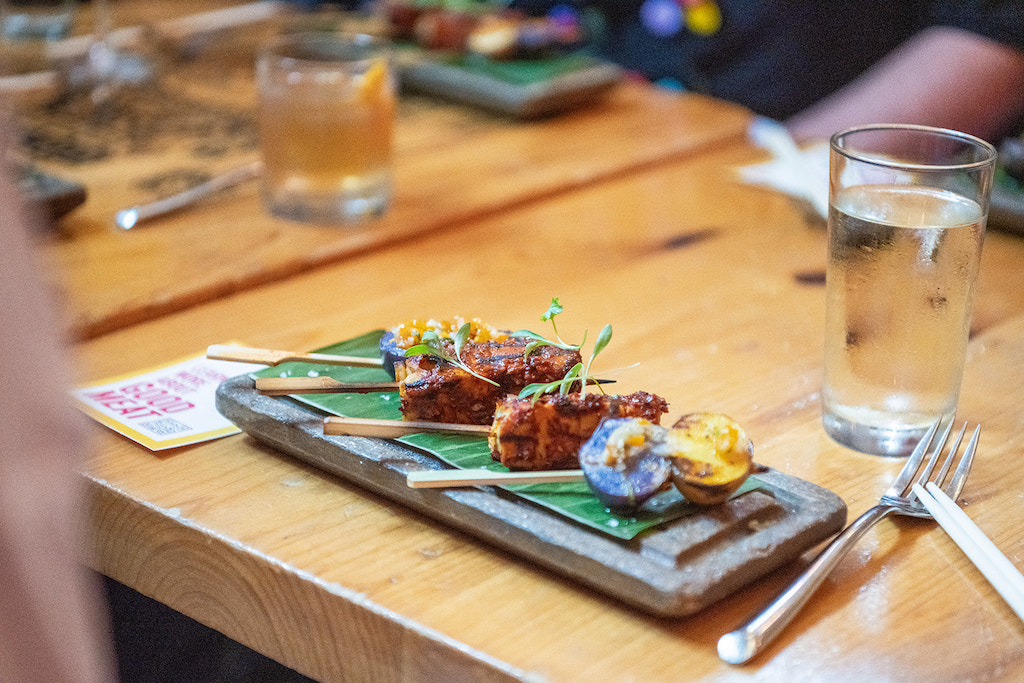Despite Gaining USDA Approval, Cultivated Meat Could Be Banned in Florida
6 Mins Read
A Republican legislator in Florida has introduced a bill proposing to ban the production, sale and distribution of cell-cultured meat in the state. If signed into law, this would come into effect in July 2024.
On Monday, Florida House Republican Tyler Sirois proposed a new bill that would impede the regulatory progress made by cultivated meat in the US. The proposed legislation (HB 435) seeks to ban the production, sale, holding and distribution of cell-cultured meat within the state, imposing criminal penalties on anyone violating these rules.
The bill, which would come into effect in July 2024 if signed into law, would be in contrast to the position taken up by other states and the central administration. In June, the US Department of Agriculture granted clearance for the production and sale of cultivated chicken to Californian companies Upside Foods and Eat JUST, making the US only the second country to approve cultured meat after Singapore did so in late 2020.
Florida’s bill threatens to halt these advancements in the US, which has by far the highest number of publicly announced companies working in this space (43) and commands 60% of global cultured meat investments.
Florida’s proposed cultivated meat ban

Sirois’ bill lays out a list of penalties for those who fail to comply with the proposed ban. Deeming it unlawful to make or sell cultured meat in the state, any person violating this would face a misdemeanour of the second degree, alongside a fine between $500 to $1,000. Meanwhile, any food establishment doing so would be subject to disciplinary action. The license of any restaurant, store, or other business in violation could be suspended or issued an immediate stop-sale order.
The bill also authorises the Department of Agriculture and Consumer Services to adopt additional specific rules governing the use of cultured meat in the state. This means anyone looking to obtain regulatory approval for cultivated meat in Florida would require authorisation from the department.
Apart from its animal welfare credentials, cultured meat is much more environmentally friendly than conventional meat, which accounts for 60% of food emissions globally. Animal agriculture, meanwhile contributes between 11-19.5% of all emissions.
A life-cycle assessment (LCA) published earlier this year found that cultivated meat is three times more adept at turning crops into meat than even the “most efficient” livestock (significantly reducing its land use), while the lack of manure means its nitrogen emissions are lower too. A similar LCA by alt-protein industry think tank the Good Food Institute in 2021 revealed that cell-based meat produced via renewable energy can have a 92% lower impact on global heating, requires 95% less land, and uses 78% less water compared to conventionally farmed beef.
But Florida’s proposed bill spotlights the larger disconnect between meat and climate change in the US – a Washington Post and University of Maryland poll in July revealed that 74% of Americans don’t believe eating meat has any impact on climate change. Meanwhile, Sirois’ proposal reflects many leading Republicans’ stance on climate change – in one primary debate, the party’s presidential candidates refused to connect human activity to the ecological crisis, with one actually calling it a hoax.
Florida governor Ron DeSantis – formerly seen as one of the major challengers to former president Donald Trump for the Republican presidential nomination but losing traction of late – deflected the question after saying: “Let’s have this debate. We’re not schoolchildren.”
Policy support for cultured meat in the US

While some are suggesting that cultivated meat isn’t for sale anywhere in the US, both Eat JUST’s GOOD Meat and Upside Foods are selling their cell-cultured chicken at upscale restaurants, the former at China Chilcano in Washington, DC and the latter at Bar Crenn in San Francisco, California.
In fact, California has been at the forefront of legislative cultured meat support. In July 2022, it became the first US state to invest in research for these foods, allocating $5M of the state budget for alt-protein research.
The national government has also thrown its weight behind the sector. The Biden administration released an executive order in September 2022, directing agencies to create reports on the biotech sector, which included one from the USDA on “cultivating alternative food sources”. This was followed by the earmarking of $6M to USDA’s Agricultural Research Service for alt-protein R&D.
A year before this, the US government made its largest public funding package for alt-protein through a $10M NIFA grant, which formed the Tufts University Center for Cellular Agriculture in Massachusetts.
There’s still a long way to go, however. Last year, the US Inflation Reduction Act (IRA) was signed into law by Joe Biden, billed as the most ambitious climate act passed in the country. It earmarked $369B for clean energy, but just over 5% of the money is set aside for changing farming practices, which account for 11% of the US’s greenhouse gas emissions.
Moreover, this spending overlooks meat and dairy production, as well as food waste. The ‘climate-smart’ agricultural practices the IRA seeks to promote won’t actually reduce emissions all that significantly. This disproportionate funding is reflective of the global climate finance gap – only 4.3% of all climate investments go to agrifood systems, which make up a third of all GHG emissions.
Other countries looking to ban cultivated meat

Nevertheless, Florida’s proposed ban on cultivated meat undoes a lot of the good work done to progress this sector in the US. More internationally, Italy has been making headlines this year with its own proposed ban on cultured meat to protect its food heritage. The country withdrew its notification for the bill to the EU last month, but only as it expected a rejection. Its agricultural minister has since confirmed that the government is looking to press ahead with the bill.
Similarly, the Romanian Senate has reportedly voted to prohibit the sale of cultivated meat too, which is pending approval from the Chamber of Deputies, which has the final say. Violations would mean a fine between €40,000-60,000.
“This proposal threatens to cut Romania off from investment and job opportunities, undermine efforts to tackle climate change and restrict consumer choice,” GFI Europe’s policy manager Seth Roberts told Romania-Insider. “It would also leave Romania behind as countries around the world invest in cultivated meat as part of a future-proof food system.”
On Italy’s proposed ban, Robert E Jones, president of the industry association Cellular Agriculture Europe, told Green Queen: “As such a move will be a blatant violation of EU law, it is yet another sign that this is all political theatre to fulfill a campaign promise to a vocal minority, and a monumental distraction from the real conversation we need to have about creating a climate-resilient food system in Europe.”




